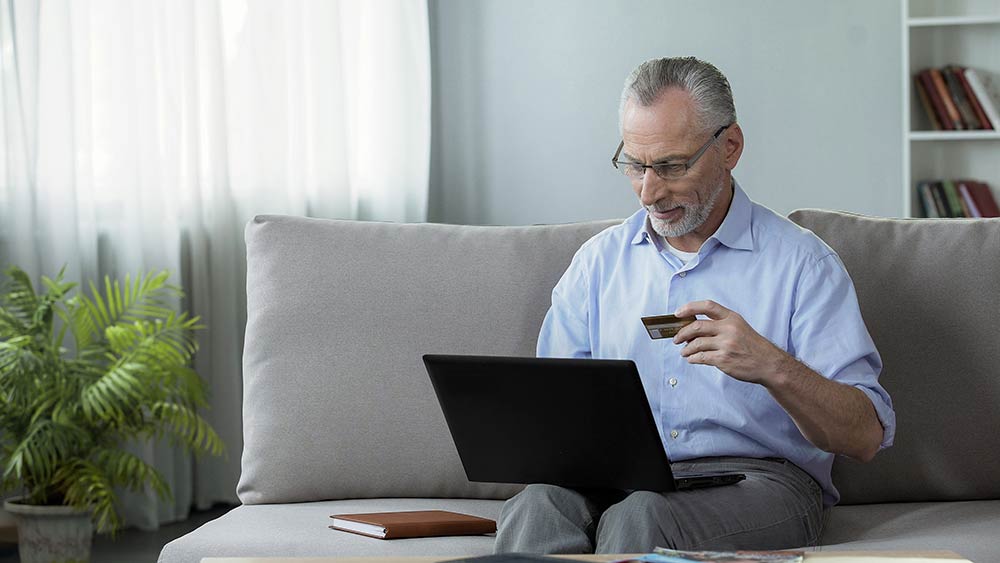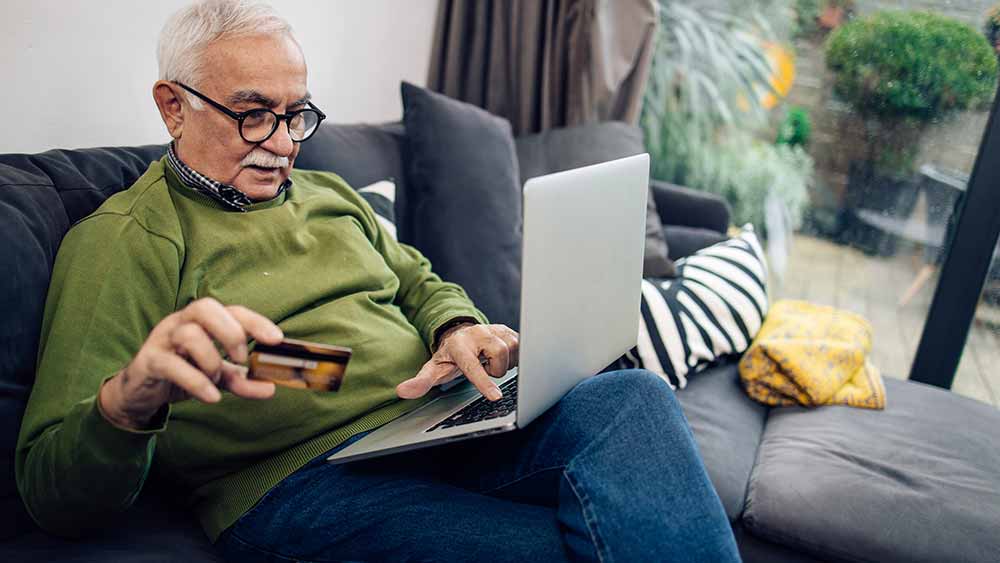

Older Adults and the Internet: The Good and The Bad
Older people don’t understand the internet. Seniors don’t know how to find stuff online. Online banking is too complicated for older folks.
Not true, according to Dr. Ipsit Vahia, Associate Chief of the Division of Geriatric Psychiatry at Mass General Brigham – McLean Hospital. “With good training and support, older people are as capable as their younger counterparts of picking up new technologies,” says Dr. Vahia.
Sorting Facts From Fiction
When it comes to the internet, if you are guilty of stereotyping seniors, you should know that 75% of individuals age 65 years and older use the internet, with 71% using it daily, the Pew Research Center reports. In addition, results of a Google survey show the majority of online seniors spend at least six hours a day online and own an average of five devices.
So, What Are Seniors Doing Online?
Likely, they’re doing the same things you are, including reading the news and weather; shopping for groceries, household items, and clothing; looking for recipes and nutrition facts; finding health care information; playing games; and connecting with friends and family.
Med Alert Help reports that 55% of seniors follow a group or organization on social networks, but only 20% of grandparents use email to communicate with their families. Facebook, YouTube, Pinterest, Instagram, LinkedIn and Twitter are the social sites that seniors use, with Facebook and YouTube ranking the highest, according to the Pew Research Center.
The Good and Bad of Elderly Internet Use
Although there is plenty of information regarding the effects of online use on the youngest users of the internet, very little exists regarding elderly users. But logic tells us a few of the good and bad things that result from elderly internet use.
The Good
The internet is a good tool for keeping us informed. The Gerontechnologist reports that 66% of seniors get their news and weather online. Today’s newspapers and magazines are available online. A quick Google search of your area’s weather forecast is available in seconds from numerous sites.
Got a history question or want to know more about your ancestors? A wealth of resources is at your fingertips to give you the answers. Plus, learning is good for the brain at any age.
The internet connects us to resources such as online grocery shopping and meal delivery. The coronavirus pandemic introduced many to online shopping, which continues to be popular. The Gerontechnologist reports that 57% of older internet users shop online, and 44% order meals delivered.
We stay connected online with family and friends. With online sites such as Senior Planet, Pogo, and SENIORSonly Club, there are plenty of opportunities for seniors to make new friends.
The Bad
Lingering online can have its downsides, too. If we remain online for too long, we may not get the physical exercise needed to stay healthy. Remember to get up and move. Right at Home offers helpful tips for exercising.
Although the internet is a good way to stay connected, we still need face-to-face contact. According to a study conducted by the International Association for Relationship Research, the frequency of face-to-face interactions is more consistently related to well-being than telephone or digital interactions.
The prospect of being scammed online is a problem for people of all ages; however, the elderly may be more at risk. Right at Home offers helpful tips for avoiding scams and protecting your older loved one’s data privacy.
Resources To Help
As Dr. Vahia suggests, good training and support can help the elderly with technology. If you have an elderly loved one or acquaintance who needs help with technology, reach out to them and offer help in a nonjudgmental way. You may also volunteer to help at your local senior center or church. Seniors also can find help on sites like Seniors Guide to Computers and Cyber-Seniors. There are many training resources to help older adults stay connected, including programs designed specifically for seniors.
How Right at Home Can Help
If you have an aging loved one who needs companionship, assistance with daily activities, or personal hygiene support, Right at Home’s caregivers can provide the one-to-one care and attention your loved one needs to feel secure and independent at home. Our caregivers can also support them in the activities they enjoy, such as communicating online with friends and family. We create a care plan for your loved one and match them with the right caregiver based on interests, hobbies and personality. Call your local Right at Home office for a FREE in-home consultation.







